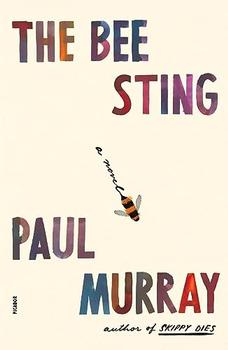Summary | Excerpt | Reading Guide | Reviews | Beyond the book | Read-Alikes | Genres & Themes | Author Bio

A Novel
by Bernardine Evaristo"Joyfully polyphonic and vibrantly contemporary, this is a gloriously new kind of history, a novel of our times: celebratory, ever-dynamic and utterly irresistible." ―Booker Prize citation
From one of Britain's most celebrated writers of color, Girl, Woman, Other is a magnificent portrayal of the intersections of identity and a moving and hopeful story of an interconnected group of Black British women. Shortlisted for the 2019 Booker Prize and the Gordon Burn Prize, Girl, Woman, Other paints a vivid portrait of the state of post-Brexit Britain, as well as looking back to the legacy of Britain's colonial history in Africa and the Caribbean.
The twelve central characters of this multi-voiced novel lead vastly different lives: Amma is a newly acclaimed playwright whose work often explores her Black lesbian identity; her old friend Shirley is a teacher, jaded after decades of work in London's funding-deprived schools; Carole, one of Shirley's former students, is a successful investment banker; Carole's mother Bummi works as a cleaner and worries about her daughter's lack of rootedness despite her obvious achievements. From a nonbinary social media influencer to a 93-year-old woman living on a farm in Northern England, these unforgettable characters also intersect in shared aspects of their identities, from age to race to sexuality to class.
Sparklingly witty and filled with emotion, centering voices we often see othered, and written in an innovative fast-moving form that borrows technique from poetry, Girl, Woman, Other is a polyphonic and richly textured social novel that shows a side of Britain we rarely see, one that reminds us of all that connects us to our neighbors, even in times when we are encouraged to be split apart.
It’s refreshing to read a book that encompasses such a variety of human perspectives and flaws but that still unequivocally centers blackness, non-male genders and queer sexualities, as well as non-traditional relationships and family arrangements. While Evaristo’s novel entertains many points of view, it doesn’t stumble into moral vagueness or the idea that all opinions and experiences are the same. Instead, it chooses motion over stagnation, self-awareness over denial. It insists on pushing through discomfort and moving forward...continued
Full Review
(1018 words)
This review is available to non-members for a limited time. For full access,
become a member today.
(Reviewed by Elisabeth Cook).
 In October of 2019, Bernardine Evaristo took home the Booker Prize in a win that garnered special attention for multiple reasons. Specifically, Evaristo was the first Black woman to win the prize, and she didn't have the win all to herself; the judges split it between Evaristo for Girl, Woman, Other and Margaret Atwood for The Testaments.
In October of 2019, Bernardine Evaristo took home the Booker Prize in a win that garnered special attention for multiple reasons. Specifically, Evaristo was the first Black woman to win the prize, and she didn't have the win all to herself; the judges split it between Evaristo for Girl, Woman, Other and Margaret Atwood for The Testaments.
This isn't the first time a Booker Prize has been shared by two winners. Judges gave the award to both Nadine Gordimer (for The Conservationist) and Stanley Middleton (for Holiday) in 1974, and also to Michael Ondaatje (for The English Patient) along with Barry Unsworth (for Sacred Hunger) in 1992. However, following the Ondaatje/Unsworth win, the Booker Prize Foundation implemented a rule requiring ...
This "beyond the book" feature is available to non-members for a limited time. Join today for full access.

If you liked Girl, Woman, Other, try these:

by Natasha Brown
Published 2025
Remember—words are your weapons, they're your tools, your currency: a twisty, slippery descent into the rhetoric of truth and power from a "powerful new voice in British Literature" (The Sunday Times).

by Paul Murray
Published 2024
From the author of Skippy Dies comes Paul Murray's The Bee Sting, an irresistibly funny, wise, and thought-provoking tour de force about family, fortune, and the struggle to be a good person when the world is falling apart.
The thing that cowardice fears most is decision
Click Here to find out who said this, as well as discovering other famous literary quotes!